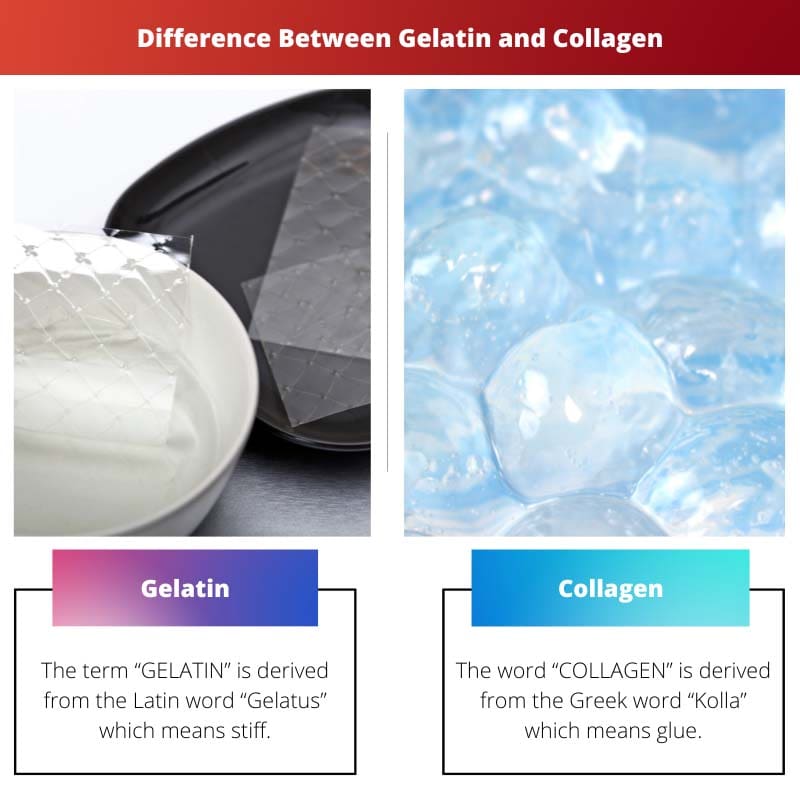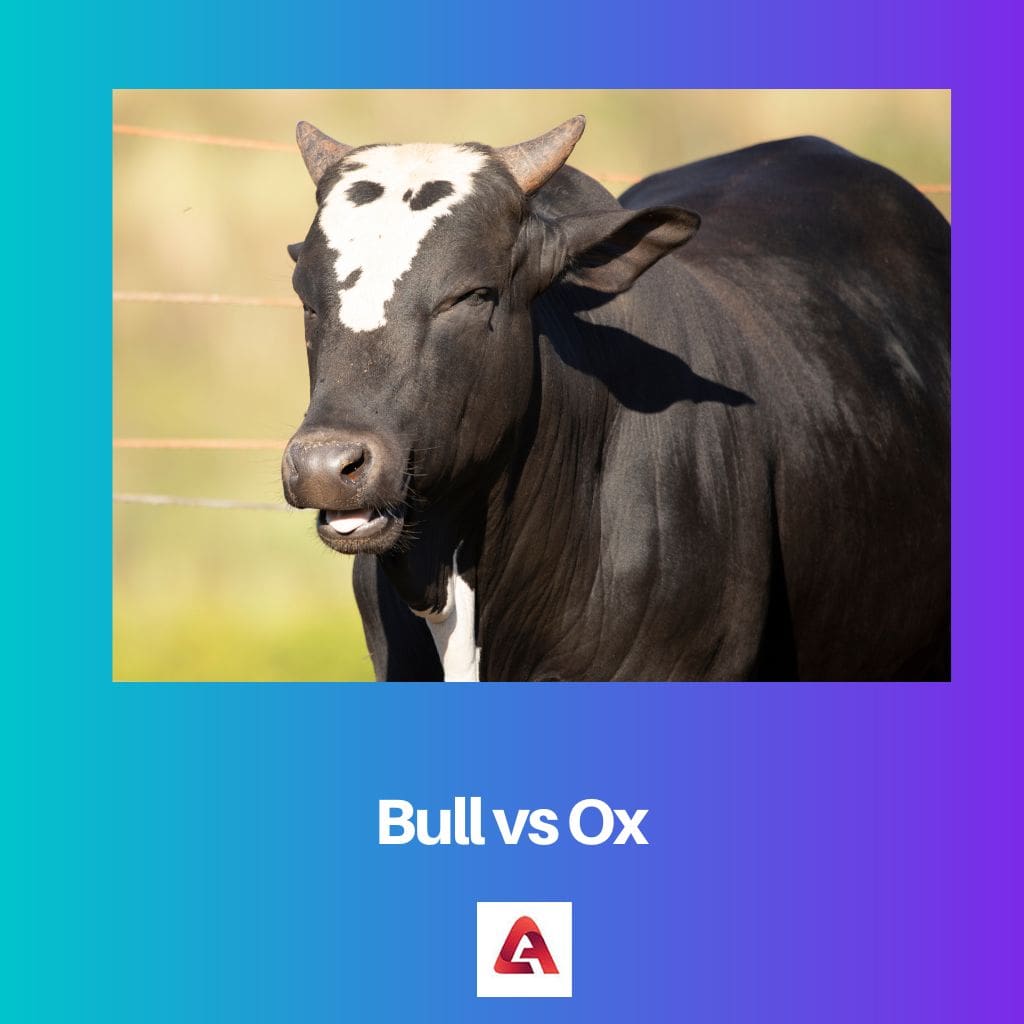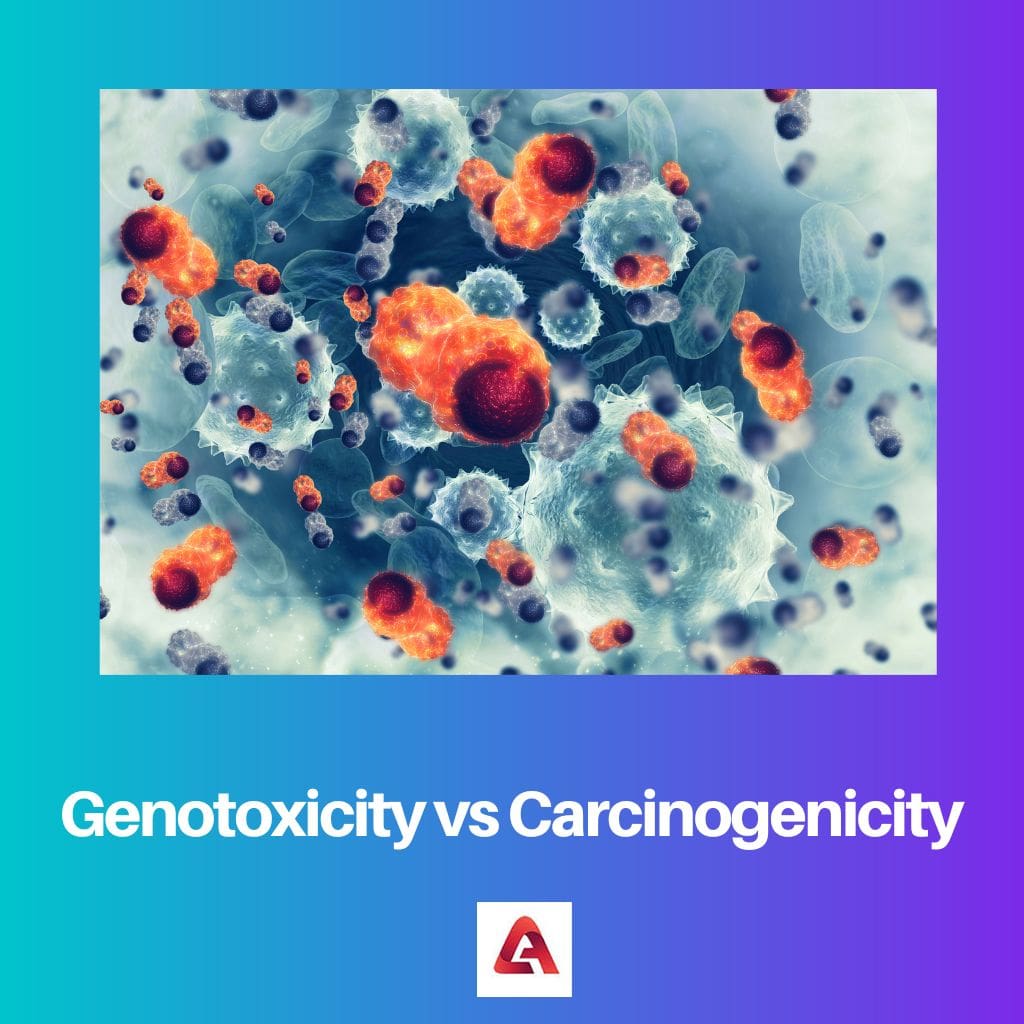Collagen is a type of protein that is present in a very large quantity in our body, on the other hand, gelatin is similar to collagen or we can say is a cooked form of collagen because they share multiple characteristics and benefits.
However, their uses and applications can vary according to their significance.
Key Takeaways
- Gelatin is derived from collagen and is created by breaking down the protein through hydrolysis, while collagen is a naturally occurring protein in connective tissues.
- Gelatin is commonly used as a gelling agent in food, pharmaceuticals, and cosmetics, while collagen is used as a supplement to promote healthy skin, joints, and bones.
- Both gelatin and collagen are sourced from animal products such as skin, bones, and cartilage, but they serve different purposes and properties.
Gelatin vs Collagen
Gelatin is a protein substance obtained by boiling animal skin, bones, and connective tissue in water. The boiling process breaks down the collagen fibres in the animal parts. Collagen is a protein found naturally in animals’ connective tissues, including skin, bones, and cartilage. Collagen is a significant component of the skin.
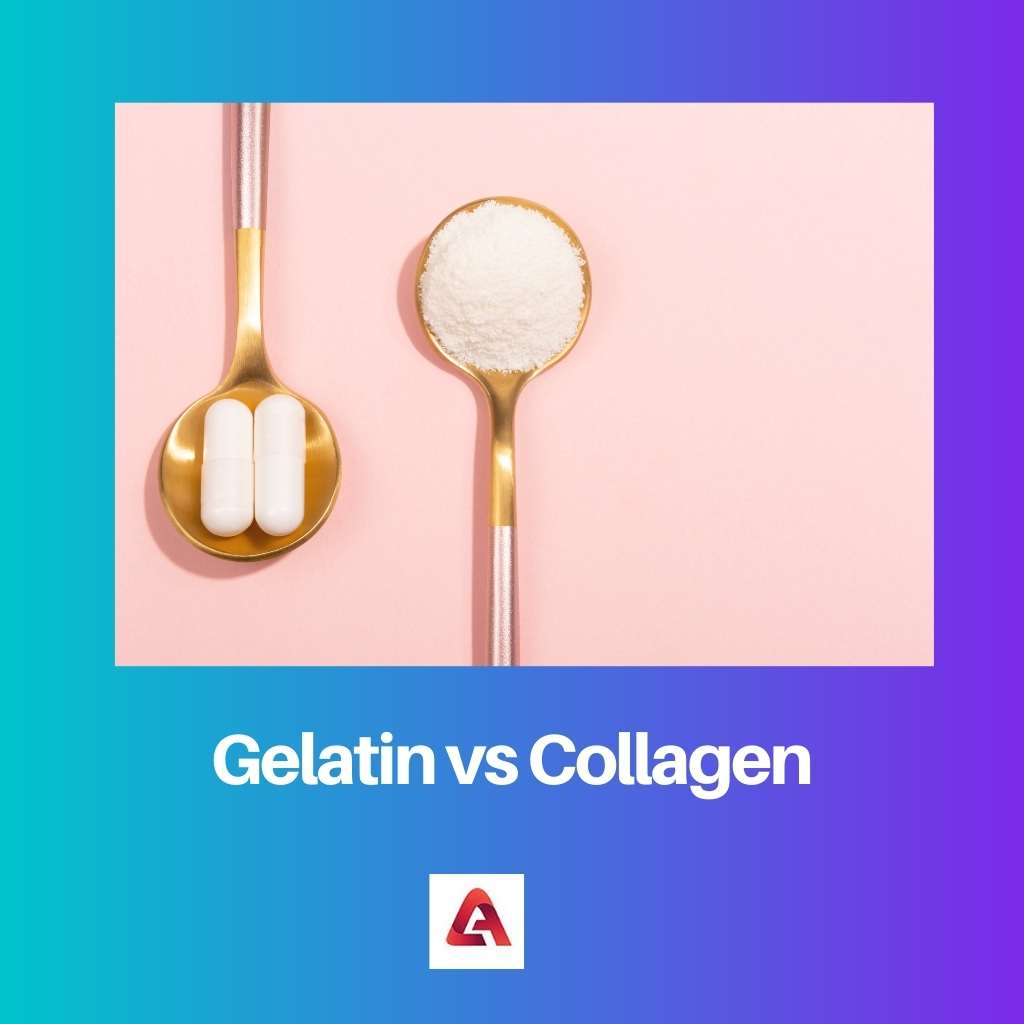
Gelatin has many essential health benefits because of its unique combination of amino acids. Gelatin has been tested in joints and brain function and has shown promising results, and some doctors believe it may improve the appearance of hair and skin.
Gelatin is not suitable for vegans because it is made from animal parts.
Collagen is a protein found almost everywhere in the human body. When it comes to health, collagen has many vital roles, including helping your blood clot and providing structure to your skin. It is considered a nutritional supplement in the modern world and is an essential ingredient.
Comparison Table
| Parameters of Comparison | Gelatin | Collagen |
|---|---|---|
| Existence | It is extracted from the bones and tissues of pigs, fish, etc. | Hydrolyzed forms of collagen supplements called collagen peptides are more accessible to digest than Gelatin. |
| Amino Acid Chains | It contains shorter amino acid chains. | It is formed by a triple helix containing three large chains with approx. 1,000 amino acids each. |
| Digestive Nature | It is more digestive than Collagen. | It only dissolves in hot water. |
| Dissolving In water | It can dissolve in both hot and cold water. | They can be found in form of granulate, powder, and sheets. |
| Form of supplements | It can be found in the form of granulate and powder. | It can be found in the form of granulation and powder. |
What is Gelatin?
“GELATIN” is derived from the Latin word “Gelatus”, which means stiff. Gelatin is a chemical compound that is commonly derived from Collagen by process of breaking its Amino Acid chains of it.
Gelatin is a semi-transparent, flavourless, and colourless food ingredient and also be used for health benefits and is extracted from body parts of different animals like pigs and fish. It is breakable when dry and appears to be rubbery when moist.
It is commonly used as a thickening agent due to its gelling nature in foods, medications, beverages, photographic films, and vitamin capsules.
Gelatinous substances contain Gelatin. Gelatin is made from the hydrolysis process of Collagen, which is irreversible.
Gelatin is also used in desserts and candies, which are Gelatin desserts (commonly known as jelly), gummy candies, ice creams, marshmallows, dips, and yoghurts.
Gelatin is widely used in cosmetics with moisturizers, topical creams, and conditioners used for texture as it helps treat wrinkles, acne, and scars.
According to a report, the gelatin effects on the skin can last for approx—Four months is low compared to other materials used for the same purpose.
It is also used for technical purposes, like lightning equipment using color gels to change the beam colour.
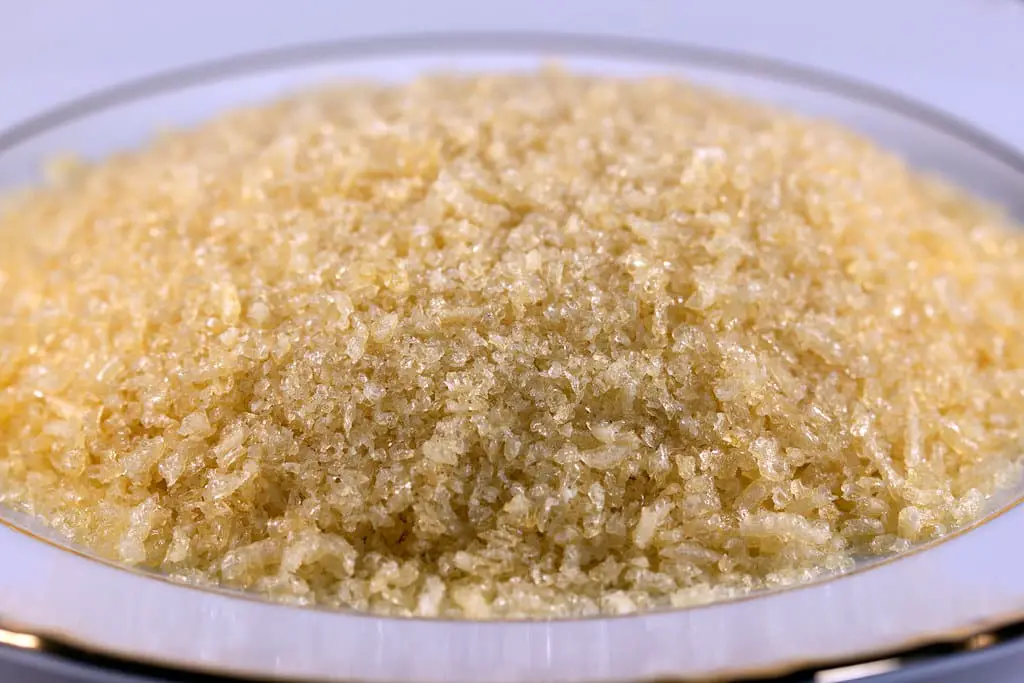
What is Collagen?
“COLLAGEN” is derived from the Greek word “Kolla”, which means glue. Collagen is a chemical compound that contains three long chains containing approx. 1000 Animo acids each.
It is a type of protein that is most important in the extracellular matrix found in the various connecting tissues of the mammal’s body, especially in the human body. The whole protein in the human body contains 25-35% of collagen.
Collagen is used for medical purposes, for treating skin and bones. In the human body, 28 types of collagen are present,, divided according to their structures; however, each collagen contains at least one set of three congruent geometrical helices with the same axis or triple helix.
The medical purposes for which collagen is used are: 1) Cardiac applications: Collagen contributes to the ability of a hollow organ to distend and increase the volume required to move blood back and forth with the help of its mass, distribution, age, and density. 2) Cosmetic Surgery: It is widely used as healing medicine for burns, bone reconstruction, and orthopaedic, dental, and surgical purposes. 3) Bone grafts: It is used in bone grafting because it has a triple helix structure preventing them from breaking down. 4) Wound healing: It can be used to close a wound.

Main Differences Between Gelatin and Collagen
- Gelatin is extracted from the bones and tissues of other animals and is not present in human body while collagen is present in human body itself.
- Gelatin is easy to digest while collagen peptide is very easy to digest by human body and they both are easily bioavailable.
- Gelatin shoes gelling property while collagen doesn’t shows gelling property, on the other hand collagen can only be dissolved in hot and cold water while gelatin can only be dissolved in hot water only.
- Gelatin is mostly used as a gelling agent and in cooking while collagen is mostly used as a nutritional supplement.
- The chemical structure of Gelatin has shorter amino acid chains while the chemical structure of Collagen has longer amino acid chains.
